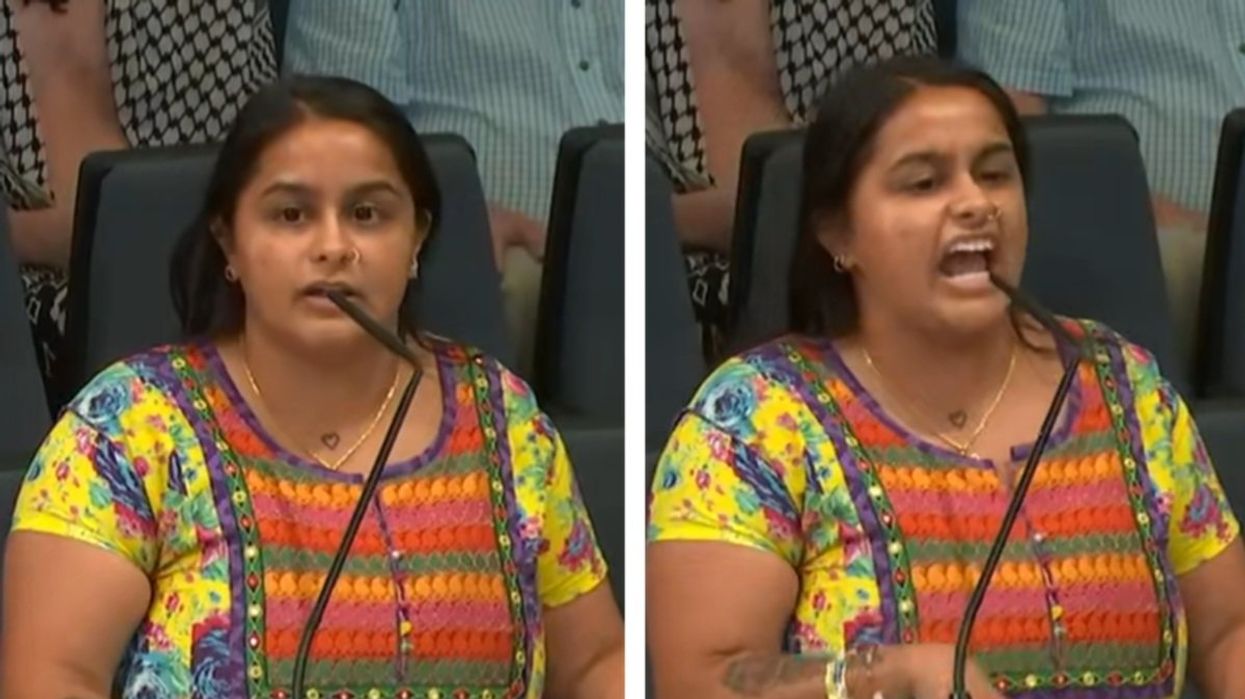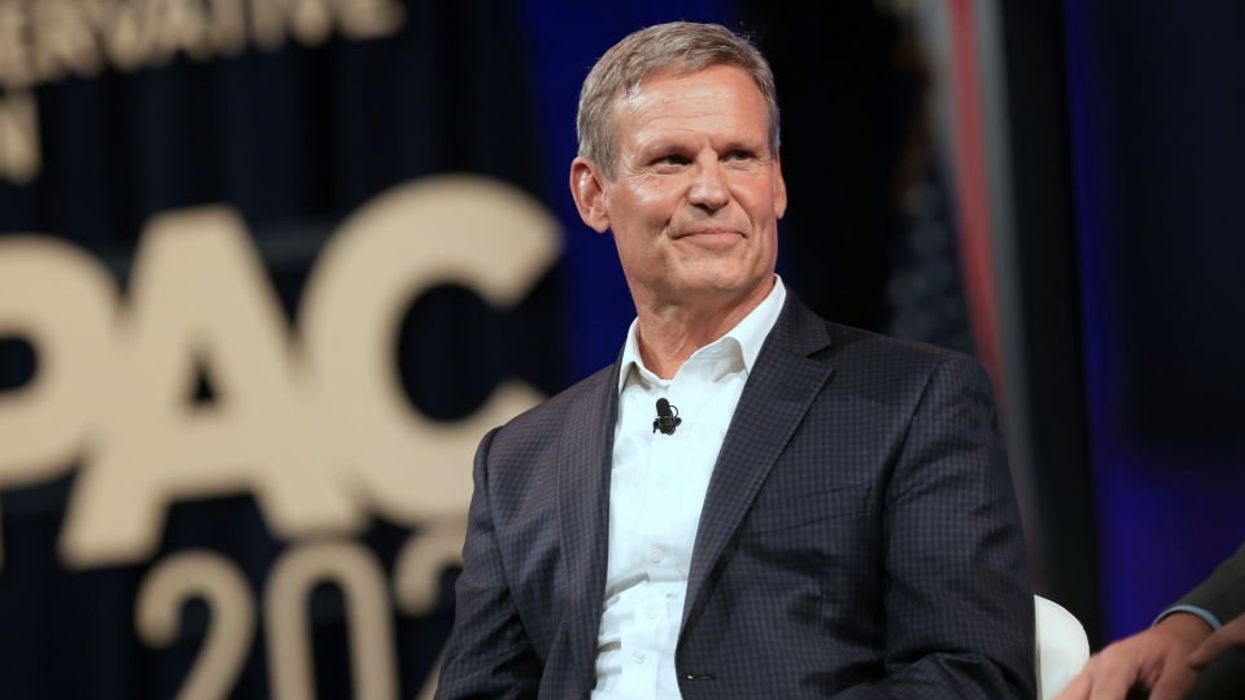
© 2024 Blaze Media LLC. All rights reserved.
Defying conservatives' optimistic expectations for one of their core issues, President Trump's Thursday order on religious freedom looks like a bigger victory for New York Values than for the First Amendment.
The initial version, which many in the conservative movement expected to the be the framework for today's order, was rather strong in that it not only rescinded President Obama's attacks on religious federal contractors, but also allowed for the creation of new groups and departments within the administration to track and monitor religious liberty the same way liberals have established bureaucratic beacons for their priority classes.
The final text of the order signed Thursday, in contrast, is little more than a hollow shell of the anticipated one with a big, red “Freedom!" sticker on top. An outline sent out by the White House on the eve of the signing breaks the order into three parts:
- A vapid rhetorical statement about where the administration stands on conscience rights;
- A portion on the Johnson Amendment;
- A promise to “provide regulatory relief for religious objectors to Obamacare's burdensome preventive services mandate, a position supported by the Supreme Court decision in Hobby Lobby."
Let's begin with the second. There is no reason that the Johnson Amendment — a provision of the tax code that restrains religious nonprofits from political speech — should even exist; it's a clear violation of free speech that discriminates against religious nonprofits and has a chilling effect on the pulpit, full stop. But all Thursday's order accomplishes, as Alliance Defending Freedom's Gregory Baylor explains, is leaving “Americans to rely on the discretion of IRS agents" for First Amendment protections.
“Nor does the outline do anything to prevent a future, hostile administration from wielding its power to penalize any church who dares exercise its constitutionally protected freedoms in a manner that displeases those in authority," Baylor continues. “A legislative problem like the Johnson Amendment demands a legislative solution like the Free Speech Fairness Act" which removes the amendment by law.
That all being said, it's important to remember that the Johnson Amendment really wasn't a top concern in religious liberty circles until it became a shiny object during the 2016 presidential campaign. Now it remains just as shiny and just as potent, and serves to distract from the fact that the kinds of much-needed protections for religious people in the market and the public square eroded during the Obama years have been left conspicuously absent in the structure of Trump's order. At a time when the most inalienable property and conscience rights are being violated by the courts and rabid sexual identity movement activists, the seldom enforced Johnson Amendment was and is a distraction.
The Hobby Lobby provision of the order is also extremely vague, seeing as the administration signaled last week that it will still spend taxpayer dollars to defend Obamacare's contraception mandate — yes the very same one that brought the Little Sisters of the Poor up the steps of the Supreme Court. Such is the political equivalent to committing adultery on your spouse and then offering to help with the divorce proceedings, as if that were somehow magnanimity.
During the signing ceremony, President Trump told the superior of the religious order that her “ordeal is over," but the order itself offers little more than the consolation that federal departments “shall consider" the changes. Short of a clear repeal of the mandate itself, or at least a broad exemption for conscientious objectors, the order's vague language is little more than just that. And as long as Obamacare's framework remains in place — thanks to liberal Republicans in Congress who will not touch religious liberty legislation with a ten-foot pole — these mandates could be turned around by the next Democrat president, a prospect not far off when incumbents fail to live up to their promises.
Still, it offers no relief whatsoever for people whose livelihoods have been threatened or destroyed by the demands of the sexual identity activist class and its corporate and cultural cronies, which the original draft would have done. What would have been an easy win clearly within Trump's power as America's chief magistrate would have been to return the status of federal contracting back to the status quo ante-Obama, but no such provision appears in the text of the order that was actually signed
For these reasons the rhetoric of the first portion of the order speaks for itself. It would appear that the liberal voices surrounding Trump that speak in leftist terms like the so-called “licenses to discriminate" have won out on this front. This order adheres far closer to the Left's “freedom to worship" rather than an honest and robust “freedom of religion."
Most importantly, to gratuitously leave in place Obama's edict barring government contracts with employers, for example, who do not have transgender accommodations in their corporate bathrooms, is a betrayal that far overshadows the utility of this political rose pedal. This is a slap in the face to a segment of the electorate that gave Trump more support than they have to any GOP candidate.
During and after the campaign, cleared-eyed religious conservatives realized that a President Trump did not mean a leader with shared values per se, but rather one with shared interests, or at least one who would remember their coalition's role in getting him across the finish line. Even this approach, it would seem, has proven to be overly-optimistic.
Want to leave a tip?
We answer to you. Help keep our content free of advertisers and big tech censorship by leaving a tip today.
Want to join the conversation?
Already a subscriber?
Blaze Podcast Host
Daniel Horowitz is the host of “Conservative Review with Daniel Horowitz” and a senior editor for Blaze News.
RMConservative
more stories
Sign up for the Blaze newsletter
By signing up, you agree to our Privacy Policy and Terms of Use, and agree to receive content that may sometimes include advertisements. You may opt out at any time.
© 2024 Blaze Media LLC. All rights reserved.
Get the stories that matter most delivered directly to your inbox.
By signing up, you agree to our Privacy Policy and Terms of Use, and agree to receive content that may sometimes include advertisements. You may opt out at any time.




